When is Maternal Death or Miscarriage Medical Malpractice?
 Pregnancy and childbirth can be a time of intense joy and anticipation for families. It can also be a time of great apprehension given the risks. Just because something goes wrong in pregnancy or childbirth doesn’t automatically mean there’s a basis for a Florida medical malpractice lawsuit. However, there are absolutely instances when maternal death and sometimes miscarriage could be grounds for a claim.
Pregnancy and childbirth can be a time of intense joy and anticipation for families. It can also be a time of great apprehension given the risks. Just because something goes wrong in pregnancy or childbirth doesn’t automatically mean there’s a basis for a Florida medical malpractice lawsuit. However, there are absolutely instances when maternal death and sometimes miscarriage could be grounds for a claim.
It is critical to work with a Southwest Florida medical malpractice attorney who understands the complexity of these claims and has the skills, resources and commitment to seek accountability from negligent medical providers when warranted.
An estimated 1 in 4 pregnancies end in miscarriage, according to the American College of Obstetrics and Gynecologists. Most of these occur in the first trimester, and there is often no obvious cause.
Questions of legal accountability can be complicated, but might be raised when there is evidence of a medical provider’s clear error, misstep, or missed diagnosis that caused or significantly contributed to the loss. Possible examples might include:
- A hospital-acquired infection.
- Failure to provide prompt and proper treatment in the event of a medical emergency.
- Missed diagnosis of a serious condition, such as preeclampsia, can lead to miscarriage and/or maternal death.
However, under current Florida law, civil liability for negligence leading solely to the death of a fetus (as opposed to the mother) would not be considered “wrongful death.”





 Florida Personal Injury Lawyer Blog
Florida Personal Injury Lawyer Blog



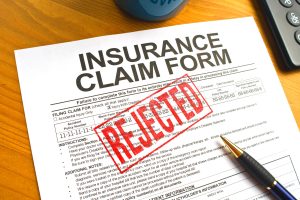 If you are a resident or property owner in Southwest Florida (particularly in Lee County, Collier County, and Charlotte County), odds are fair that you’re dealing with some type of insurance claim due to destruction caused by Hurricane Ian. Although insurance companies can be frustrating to work with even under “normal” circumstances, keeping up with your claim can become 10 times more stressful in the wake of a natural disaster. One thing to bear in mind is that if the insurers do not respond to your claim in good faith, it may be possible to hold them accountable with a Florida bad-faith insurance claim.
If you are a resident or property owner in Southwest Florida (particularly in Lee County, Collier County, and Charlotte County), odds are fair that you’re dealing with some type of insurance claim due to destruction caused by Hurricane Ian. Although insurance companies can be frustrating to work with even under “normal” circumstances, keeping up with your claim can become 10 times more stressful in the wake of a natural disaster. One thing to bear in mind is that if the insurers do not respond to your claim in good faith, it may be possible to hold them accountable with a Florida bad-faith insurance claim.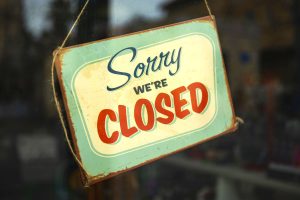 The number of Florida insurance claims filed after Hurricane Ian is steadily rising, with the
The number of Florida insurance claims filed after Hurricane Ian is steadily rising, with the 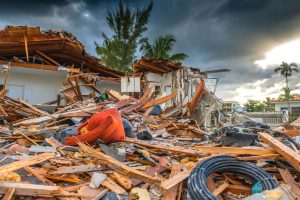 Many in our Southwest Florida community who sustained Fort Myers property damage during Hurricane Ian are wondering where to even begin when it comes to filing insurance claims. Roofs were blown off. Lanais are no more. Vehicles were flooded. Homes were flooded if not entirely swept away.
Many in our Southwest Florida community who sustained Fort Myers property damage during Hurricane Ian are wondering where to even begin when it comes to filing insurance claims. Roofs were blown off. Lanais are no more. Vehicles were flooded. Homes were flooded if not entirely swept away. As far as workplaces go, construction sites are among the most precarious. The
As far as workplaces go, construction sites are among the most precarious. The  In any Florida premises liability case, the question of whether the defendant is responsible for the harm someone else suffered on their property often depends heavily on the unique circumstances of the case. Sometimes, that circumstance is a giant ice cream cone.
In any Florida premises liability case, the question of whether the defendant is responsible for the harm someone else suffered on their property often depends heavily on the unique circumstances of the case. Sometimes, that circumstance is a giant ice cream cone.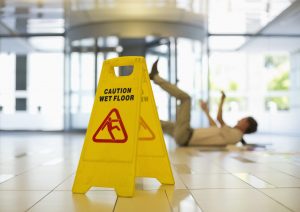 Wet walking surfaces are a top cause of slip-and-fall injuries in Florida. But are businesses required to post a “wet floor” sign to warn you?
Wet walking surfaces are a top cause of slip-and-fall injuries in Florida. But are businesses required to post a “wet floor” sign to warn you?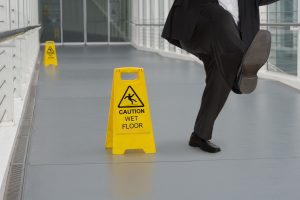
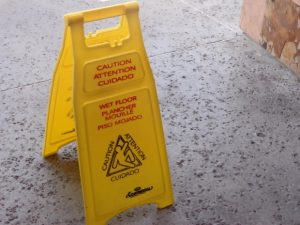 To prevail in a Florida slip-and-fall injury lawsuit, plaintiffs need to prove the business establishment had either actual or constructive notice of the hazardous condition, as outlined in
To prevail in a Florida slip-and-fall injury lawsuit, plaintiffs need to prove the business establishment had either actual or constructive notice of the hazardous condition, as outlined in 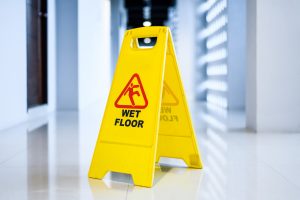 Guests who are injured on someone else’s property may have the option of filing a claim to be compensated for injuries by the property owner. These are a type of premises liability claims, and one example is if a patron at a grocery store is injured in a slip-and-fall accident on a “transitory foreign substance”. To prevail in a
Guests who are injured on someone else’s property may have the option of filing a claim to be compensated for injuries by the property owner. These are a type of premises liability claims, and one example is if a patron at a grocery store is injured in a slip-and-fall accident on a “transitory foreign substance”. To prevail in a 






